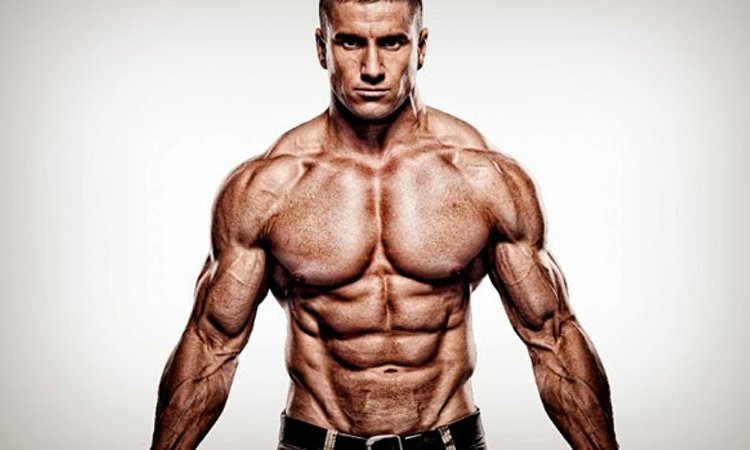Carbs act as body fuel and give you the energy so that you can lift weights and build muscle. You might have heard that following a low-carb diet can help you gain muscle and lose weight. Well, that’s actually true!
However, you need to be careful while structuring the low-carb diet plan. As a large serving of pasta, breakfast cereal, and white bread isn’t enough to gain lean muscle mass, a moderately low-carb diet containing small servings of starchy vegetables and whole grains can help in muscle growth. Whereas, very low-carb diets that limit you to consuming 50 grams of carbs or fewer each day may make gaining muscle mass harder.
So how do you want to gain lean muscle weight by following a low-carb diet? Here are some dos and don'ts to do it the right way.
1. When & Which Type of Carbs to Take
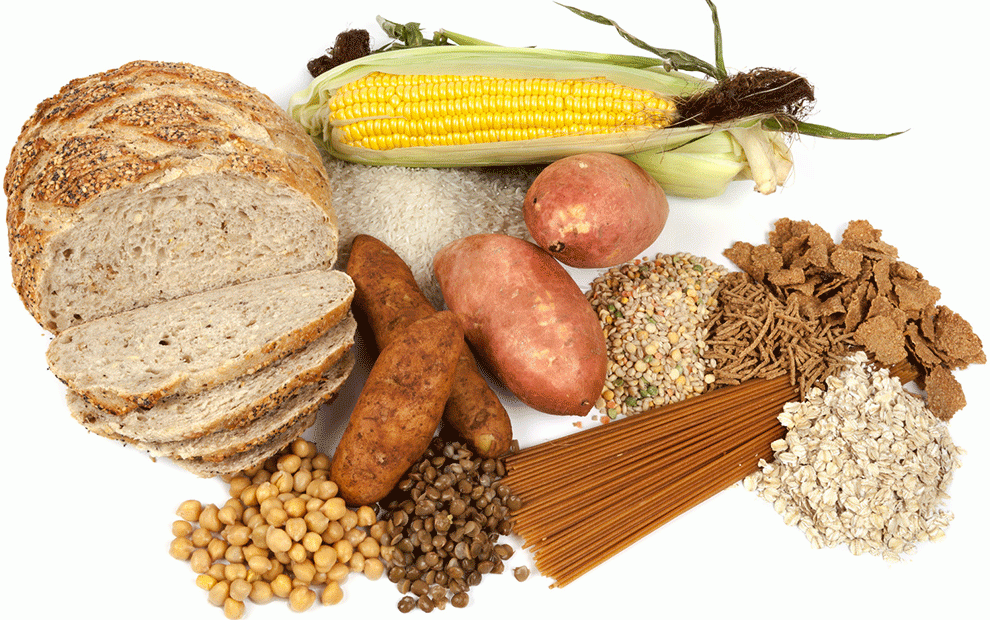
When you are on a low-carb diet, your insulin level drops and this causes the body to burn stored fat leading to weight loss. Keeping the blood sugar levels stabilized is one of the major reasons for eating a low-carb diet. For that, you also need to know the right time of consuming carbs and that is before, during, and after exercise.
Also, avoid carbs before bed as your metabolic processes will stop, you won’t burn any calories, and it will be stored as fat.
Make sure that for building lean muscle, you load your diet with low-carb veggies such as broccoli, spinach, and cauliflower and lean proteins such as chicken and shrimp. But it’s also important that you don’t exclude the carbs completely.
Rather than eating simple carbs, choose “good carbs” that are complex (carbs that take more time to break down and are fiber-rich) such as whole grains, oatmeal, legumes, nuts, and sweet potatoes. Usually, 0.7 to 1 gm of complex carbs per pound of bodyweight is recommended for lean muscle growth.
However, a high amount of carbs (500-600 calories per day) should be taken even in order on a low carb diet if you have intense or over 2-hour long exercise sessions or do weight training. When you are carb depleted because of zero calories of glucose intake, your body’s natural fat-burning capabilities also reduce considerably. So to avoid damaging your blood sugar levels, consume at least 500-600 calories of carbohydrate before and after a heavy exercise regime.
2. Take Adequate Amount of Amino Acids
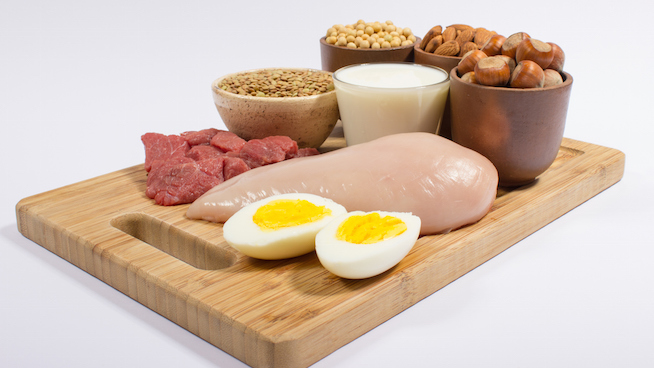
The building blocks of protein ‘amino acids’ . You may include by taking whey or you can take it from the natural diet as well. It is essential to provide protein to the muscle in the form of contractile fibers for gaining muscle mass.
Increasing the amount of dietary protein and consuming certain amino acids promote gain of lean muscle mass and your muscle recovery should be achieved by complex carbs before and after workouts.
Some of the complete protein sources (with all 9 essential amino acids) are dairy, eggs, soybeans, meat, poultry, fish, and pseudo grain quinoa. Also, when you eat beans or legumes, and grains together, your body gets all the essential amino acids. If you are living a sedentary lifestyle and can’t get manage these meals, then you should take a quality whey protein that is enriched with the ideal amino acid profile.
3. Don’t Avoid Healthy Fat
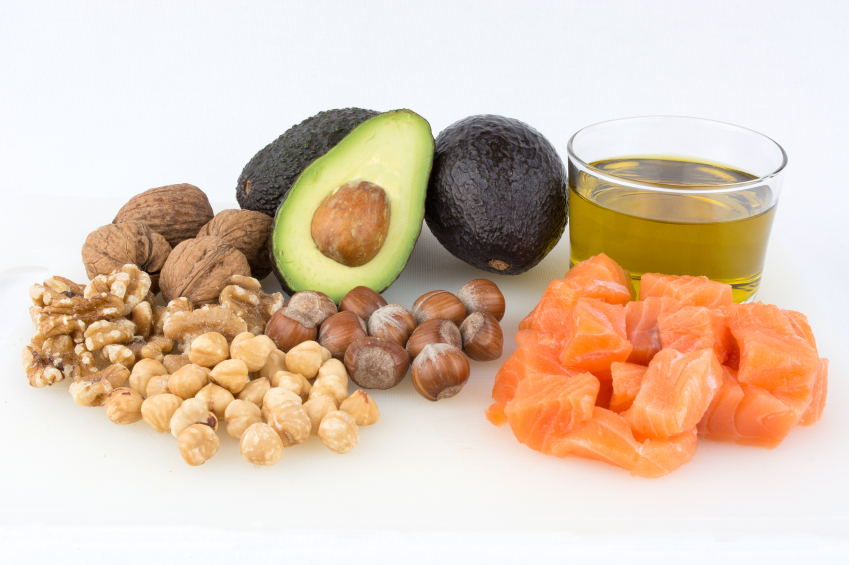
A low-carb diet rich in healthy fats aims to increase lean mass which means maximizing muscle gain and minimizing additional fat. While saturated fats and trans fats are bad for lean muscle growth, good fats don’t do any harm if consumed in an adequate amount.
Dietary fat has 9 calories per gram, double of what protein and carbohydrates contain (4 calories per gram). Due to this, dietary fat helps in providing energy for exercising and other strenuous activities. Dietary fat is also helpful in absorbing vitamins in the body and encourages proper growth and development. It is recommended that around 25-35% of your daily calories should come from dietary fat.
Good fats or healthy fats are unsaturated fats and they are of two types: omega-3 and omega-6.
Ghee, olive oil, nuts, seeds and fish/fish oil are great for gaining muscle. Vegetable oils are good sources of omega-6 and fish, flax seeds, and walnuts are rich in omega-3. Your diet should ideally have both fats in equal amounts.
4. Do Resistance Training for Lean Muscle Gain With Low/Moderate Carb Diet

A healthy, optimized low-carb diet along with resistance training is essential for lean weight gain and building muscle. Strength training and lifting heavy weights encourage the gain of lean muscle and other body benefits as well. But, when you are on a low-carb diet plan, you might not have enough energy for lifting heavy weights, and eventually, you end up with a lot of fatigue and poor performance in your workout.
Instead of an extremely low carb diet, you should opt for a moderately low carb diet with resistance training where you train with high repetitions and moderate weights. Thus, it avoids fatigue, muscle cramps and muscle loss too. The main thing you must consider is that you need to pair maximum carb consumption before or after a workout with resistance training. Furthermore, it can be possible to maintain or gain lean muscle (but at a slower pace) for a longer period of time while shedding your body fat.
Spending long hours at the gym every day is not required for gaining muscle, an intense training session twice or thrice a week is more than enough to promote a good amount of muscle growth.
Consider doing “the big three” compound exercises: deadlifts, squats and bench press as they stimulate the most muscle fibers in your body, allowing you to gain the muscle at a faster rate.
5. You Can Even Go on Keto Diet for Losing Fat & Maintaining Muscle
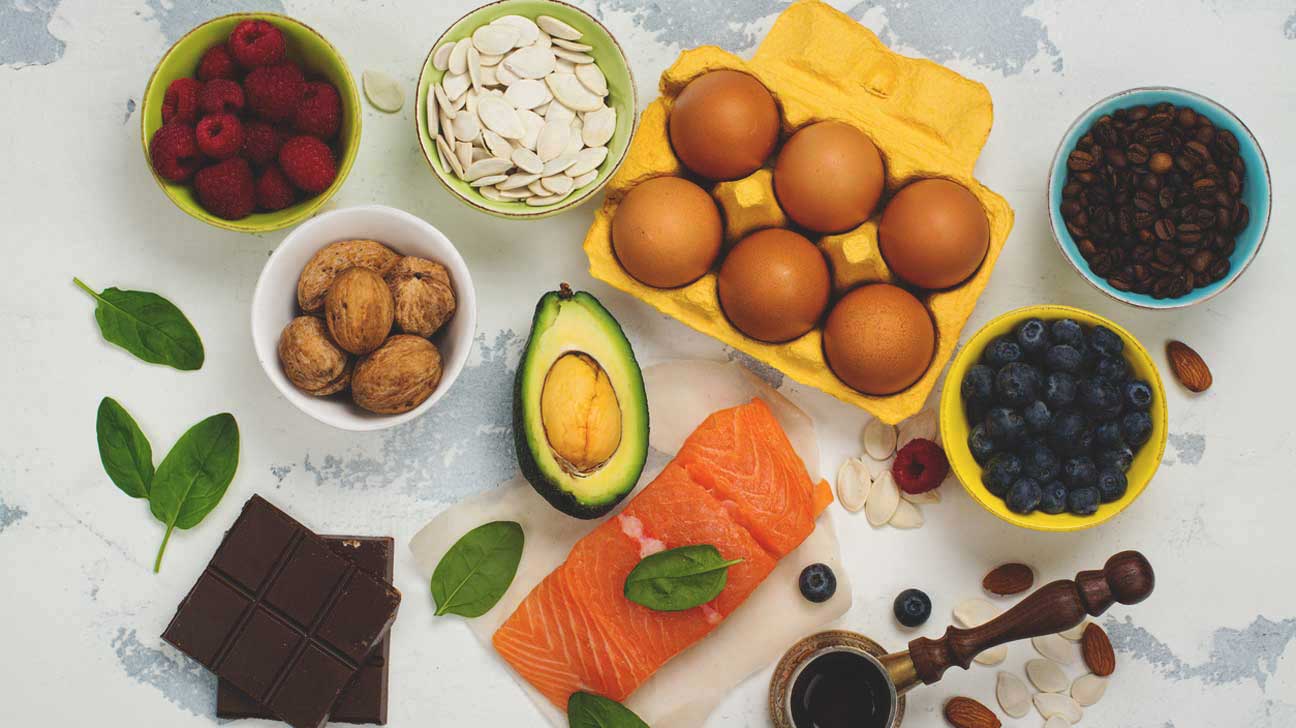
The ketogenic or keto diet, which is a very restrictive low-carb diet, decreases the carbohydrate intake at 50 grams or fewer per day and increases the fat intake to a high amount. This diet is known to be effective for fat loss, preventing excessive muscle breakdown and blood sugar level and muscle maintenance but it is not advised for massive muscle gains.
That’s because low muscle glycogen levels occur on such a diet plan as carbs are severely restricted and the body produces ketones (chemicals released for energy in the absence of glycogen) fueled by fat. Also, there is no evidence of any massive muscle gains on a keto diet.
6. Keep Yourself Hydrated

When you are on a low-carb diet or a similar one, adequate water helps in reducing the carb craving that may be experienced in the early days of the diet. Water is also important for beta-oxidation (the process in which the body burns fat as fuel).
As your body sheds stored carbs, you also lose a significant amount of water from the body and need more water from a dietary source. And drinks with added artificial sweeteners or sugars should be avoided.
7. Sleep Enough & Avoid Stress

As muscle recovery and growth occur at the time of sleeping, it is essential to have enough sleep. Moreover, sleep and stress are interlinked. If you sleep less, you are going to be more stressed. Both need to be avoided.
You may be aware that lack of sleep and stress increases cortisol levels. Higher cortisol levels have a negative impact on healthy weight gain. It may gain fat mass and also reduce muscle mass. The high cortisol levels have a direct and indirect influence on weight gain through junk food craving and overeating.
Cortisol is catabolic for muscle, the reverse of anabolic: it breaks down muscle tissue instead of building it. So for optimal condition and healthy gain of muscle weight, you should follow these simple things:
- Sleep at least 7-9 hours every day
- Unwind yourself once in a while and enjoy your life
- Socialize with people instead of being isolated (to keep the cortisol levels low)
- Don’t overtrain or exercise excessively
Image Source:
1. fitnessyasam
2. stack
3. ahchealthenews
4. stack
5. healthline
6. snapkitchen
7. gymjunkies
